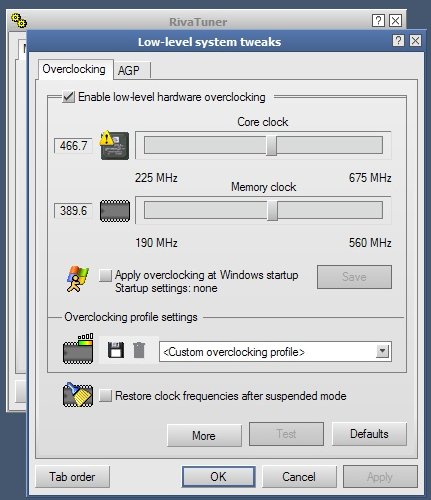Noise and Overclocking
Noise wise, the ASUS really impressed. With dynamic or explicit fan control using SmartDoctor, it's possible to make the ASUS 9800XT/VTD as near to silent as possible. Indeed, you can set fan speed to 0% of maximum, turning it off entirely. No fan assist is altogether doable in Windows, with GPU and memory temperature never going much higher than with the fan at 35% (my preferred quiet setting), doing 2D.3D is a different matter, but even overclocked, 35% fan speed wasn't a hindrance to the final clock speeds I managed to obtain. It went just as fast in quiet 35% mode than it did at 100% in noisy mode. At 100%, it's not the quietest card you'll ever hear, but thankfully SmartDoctor is at hand to sort things out. One of the quietest cards I've had the pleasure of using, thanks to ASUS' useful control utility.
Overclocking
Overclocking the reference board was a surprise. The R360 powered reference board managed the heady heights of 468/780DDR, posting some useful 3DMark 2001SE scores when I had the mind to push it. Way past 22000 marks with a clocked P4.However the ASUS was more than a touch slower. While SmartDoctor gives you up to 440/740DDR, that's about as high as it went. Turning off SmartDoctor and using Powerstrip, only 442/744 was obtainable as a stable clock that would run all tests. A fair bit behind the reference board for whatever reason and comparable to a few months old Hercules 9800 Pro review sample I had. Not the greatest clocks, given the cooling applied, and of course you might get a great clocker. I can only report what the sample did however. Maxing out the SmartDoctor clock range was easy though.
Remember it did the same clocks regardless of fan speed too. And it's really slow at stock clocks isn't it....
Here's a quick shot of what the reference board would do with RivaTuner, although not too relevant to the ASUS.










